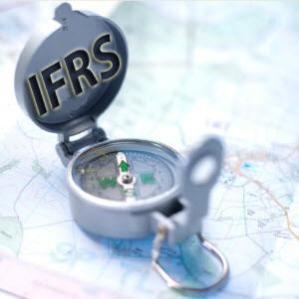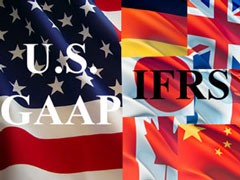 With the convergence from Generally Accepted Accounting Principles (GAAP) to International Financial Reporting Standards (IFRS) quickly approaching for United States corporations, it is still up in the air as to whether or not such a major shift in standards would translate into large benefits for most companies or the entire U.S. economy.
With the convergence from Generally Accepted Accounting Principles (GAAP) to International Financial Reporting Standards (IFRS) quickly approaching for United States corporations, it is still up in the air as to whether or not such a major shift in standards would translate into large benefits for most companies or the entire U.S. economy.
It is obvious that the adoption of IFRS would, in fact, have a sizable cost factor. Companies would have to make modifications to their accounting systems and processes. They would also have to train their employees and investors in preparing financial statements using IFRS. In today’s economy, many companies may be reluctant to incur upfront costs. However, some long-run benefits include the fact that U.S. companies with subsidiaries around the world could possibly save a lot of money by avoiding the costs of having to translate their financial reports into other accounting languages. Adopting IFRS would mean one universal global set of accounting standards. If every country has a different set of financial standards, while multinational companies exist in different countries, it is difficult to compare how each company stands because there is no consistency. Consistency is the key factor in comparing these financial statements. New safeguards will be in place to, hopefully, prevent another national economic and financial meltdown. This would enable U.S. multinationals to maintain and track a single set of accounts. Such companies could develop regional financial centers, relocate finance resources and centralize training and development efforts. One must weigh the future benefits against the current costs.
In March 2009, Deloitte surveyed over 150 finance professionals, three fourth of respondents stated their support or strong support for the movement toward a single set of high quality standards such as IFRS. However, with this support, 64% of respondents indicated that they have not allocated any budget for IFRS conversion activities (i.e. training employees, updated technology). While some companies are waiting to hear the latest news from the SEC before taking any steps to prepare for the convergence to IFRS, some companies have already hit the ground running. Twenty five percent of survey participants have budgeted funds for assessment and readiness of convergence.
The Securities and Exchange Commission’s goal and efforts, both domestically and internationally have been to have consistently pursue the achievement of fair, liquid and efficient capital markets, providing investors with information that is accurate, timely, reliable and most of all consistent.




